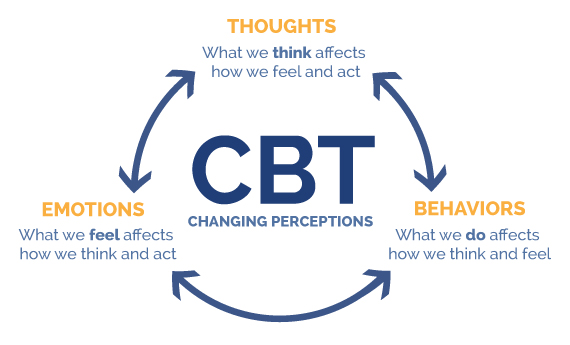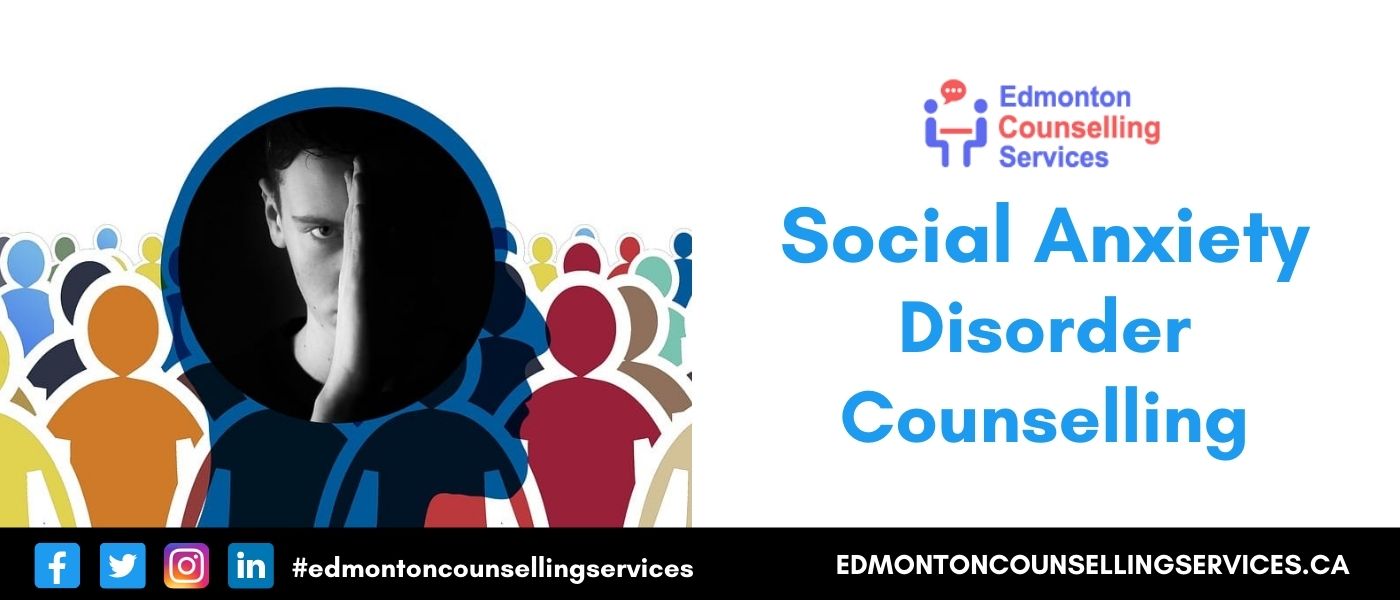Find peace and clarity with qualified counseling services for anxiety
Find peace and clarity with qualified counseling services for anxiety
Blog Article
Exploring Various Methods in Counselling for Anxiousness Disorder for Long-term Adjustment
When taking on anxiety problems, it's necessary to discover a variety of counseling techniques. Each method uses unique insights and devices to help you manage your symptoms properly. You may find that combining strategies can produce the very best results. Nonetheless, recognizing the nuances of these methods is essential to fostering enduring adjustment. Suppose the appropriate combination could launch a brand-new level of emotional wellness for you?
Recognizing Anxiety Problems: A Quick Review
Stress and anxiety conditions, which impact countless people worldwide, can considerably affect life. You may experience overwhelming feelings of fear or fret that appear irrepressible. These sensations can lead to physical signs like a racing heart, sweating, or perhaps wooziness. Typical sorts of anxiety problems include generalized anxiety problem, panic condition, and social anxiety condition. Each has one-of-a-kind indicators, but they all share a propensity to interrupt your regular and relationships.Understanding the origin of your anxiety is vital. It might stem from genes, mind chemistry, or life experiences. Acknowledging your triggers can help you manage your reactions much better. It is essential to keep in mind that you're not the only one in this struggle. Lots of people encounter similar challenges, and looking for assistance is a strong step toward sensation better. By finding out about anxiety disorders, you're already on the path to understanding and managing your problem a lot more properly.
Cognitive-Behavioral Treatment: Challenging Adverse Idea Patterns
In Cognitive-Behavioral Therapy, you'll begin by identifying the unfavorable thought activates that contribute to your anxiousness. As soon as you identify these thoughts, you'll work with changing them with more favorable alternatives. Together, you'll develop reliable coping strategies to help handle your anxiousness in everyday situations.
Recognizing Negative Idea Triggers

Recognizing the particular triggers behind your unfavorable ideas can be essential in taking care of stress and anxiety when you come across moments of distress. Beginning by taking note of scenarios that prompt feelings of concern or fear. Is it a congested space, an approaching deadline, or a discussion with specific individuals? Write down these instances in a journal. This will certainly help you identify patterns in your thinking. Notice physical sensations that accompany your unfavorable ideas, like an auto racing heart or tightness in your chest. By determining these triggers, you get understanding right into what's fueling your stress and anxiety. Understanding these connections is the very first action in challenging those ideas and eventually restoring control over your psychological actions.
Changing Ideas With Positives
Challenging unfavorable thought patterns is an essential action in transforming your frame of mind and reducing anxiousness. You may frequently find on your own trapped in cycles of self-doubt or devastating thinking. As opposed to letting these thoughts dictate your sensations, method changing them with reasonable choices or favorable affirmations. For example, when you believe, "I can't manage this," move it to, "I can manage obstacles one action at once." This basic modification can considerably affect your mood. Frequently identifying and responding to these unfavorable thoughts aids create a much healthier interior discussion. Remember, it takes time and effort, but consistently exercising this strategy can result in long-term change, empowering you to deal with stress and anxiety with restored self-confidence and durability.
Building Coping Approaches Together
Changing adverse ideas is only the start of managing anxiety successfully. To develop lasting change, you need to develop coping approaches that equip you. Cognitive-Behavioral Therapy (CBT) assists you recognize and test those unhelpful thought patterns. Together, you and your therapist can explore exactly how these ideas influence your sensations and behaviors.Start by establishing practical techniques, like journaling or mindfulness exercises, that permit you to confront anxiousness head-on. When you face your anxieties gradually, you'll learn to respond in different ways.

Mindfulness and Acceptance-Based Approaches: Cultivating Present-Moment Recognition
As you navigate the intricacies of anxiousness, integrating mindfulness and acceptance-based techniques can substantially improve your capacity to grow present-moment awareness. By concentrating on the present moment, you'll locate that you can observe your thoughts and feelings without judgment (Counseling services for anxiety). This technique aids you acknowledge your stress and anxiety without feeling bewildered by it.Engaging in mindfulness exercises, such as deep breathing, body scans, or guided meditations, allows you to ground on your own in your present experience. Acceptance-based methods urge you to embrace your feelings instead of fight against them. When you accept your sensations, they lose their power over you.Incorporating these practices right into your daily routine can transform how you respond to anxiousness. You'll create resilience and learn to browse stressful circumstances with better ease. Ultimately, growing present-moment understanding lays the foundation for enduring change, encouraging you to lead a more meeting life
Exposure Treatment: Challenging Worries Gradually
Exposure therapy aids you face your fears in a progressive means, making it much less overwhelming. You'll discover techniques to deal with anxiety-provoking circumstances step by step, while also constructing coping approaches to handle your reactions. This method equips you to take control and minimize anxiousness with time.
Gradual Direct Exposure Techniques

When encountering stress and anxiety, progressively confronting your concerns can be a powerful method to restore control. This technique, understood as steady direct exposure, involves slowly subjecting yourself to the scenarios or items that trigger your stress and anxiety. Start with less challenging scenarios and progressively work your means approximately more tough ones. As an example, if you hesitate of public speaking, you might begin by speaking in front of a mirror, after that progress to sharing ideas with a buddy, and at some point address a tiny team. Each step aids desensitize you to the concern, developing your confidence in time. Remember, it's necessary to pace yourself and celebrate little triumphes as you move with this procedure, reinforcing your ability to handle anxiousness successfully.
Structure Coping Approaches
Building effective coping approaches is necessary for managing anxiousness, especially as you challenge your worries slowly - Counseling services for anxiety. One powerful technique is exposure treatment, where you begin by facing your concerns in a regulated manner. Begin with much less frightening circumstances and slowly function your way up to more challenging circumstances. This steady exposure assists desensitize you to anxiety triggers, making them less overwhelming.Incorporate relaxation strategies, such as deep breathing or mindfulness, to soothe your mind throughout exposure. Track your development, commemorating small triumphes along the road to improve your self-confidence. Remember, it's alright to take your time; the goal isn't perfection yet steady renovation. By developing these approaches, you'll empower yourself to navigate anxiety and welcome life much more fully
Psychodynamic Treatment: Uncovering Root Causes of Anxiousness
Psychodynamic treatment discovers the subconscious mind, revealing the root triggers of your anxiety. By analyzing your ideas, sensations, and previous experiences, this technique aids you reveal underlying conflicts and unsettled problems that might add to your present stress and anxiety. You'll collaborate with a therapist to investigate youth experiences, relationships, and emotional patterns that form your reactions today.As you acquire insight into these much deeper layers of your psyche, you'll start to recognize how previous events influence your present behavior. This understanding can lead to catharsis, permitting you to refine emotions you could have suppressed.Through the healing relationship, you can likewise determine defense reaction that may have established over time, offering a more clear course to transform. Eventually, psychodynamic therapy equips you with the devices to address your stress and anxiety at its core, advertising long lasting change in your psychological wellness.
Integrative and Alternative Methods: Incorporating Techniques for Greater Effectiveness
Integrating different therapeutic methods can enhance your journey towards taking care of anxiety more properly. By integrating aspects from cognitive-behavioral therapy, mindfulness techniques, and all natural techniques, you can develop a customized strategy that resolves your unique needs. You may utilize cognitive-behavioral methods to test adverse thought patterns while integrating mindfulness workouts to ground on your own in the present moment.Additionally, exploring holistic techniques such as yoga or meditation can advertise relaxation and decrease anxiousness signs and symptoms. This blend enables you to develop higher self-awareness and resilience.Experimenting with these varied methods can assist you find what resonates most with you. Bear in mind, it's concerning discovering a harmony that functions, instead than staying with a solitary method. This integrative strategy not only offers immediate relief yet additionally fosters long-term skills for managing anxiety, encouraging you to redeem control over your life.
The Function of Support Systems: Structure Strength Via Link
While it might appear that handling anxiety is a singular trip, having a solid assistance system can play a necessary duty in your resilience. Surrounding on your own with understanding pals, family, or support system creates a risk-free room where you can honestly share your experiences and feelings. When you attach with others, you advise on your own that you're not the only one in this struggle.These partnerships use motivation and can provide useful coping techniques that have actually benefited others. It's likewise an opportunity to gain perspective; good friends can aid you see situations differently, lowering feelings of isolation.Moreover, emotional assistance promotes a sense of belonging, which can greatly reduce anxiety symptoms. By leaning on your support system, you can build resilience and deal with obstacles better. Bear in mind, reaching out for aid signifies strength, and it can make all the distinction in your trip toward taking care of stress and anxiety.
Often Asked Questions
What Are the Common Signs And Symptoms of Stress And Anxiety Conditions?
You might experience uneasyness, exhaustion, difficulty concentrating, irritation, muscle stress, and rest disruptions. Physical symptoms can include quick heartbeat, sweating, and shivering. Recognizing these indicators early can help you seek appropriate support and treatment.
How Much Time Does Treatment Commonly Last for Anxiety Disorders?
Treatment for anxiety problems commonly lasts anywhere from a couple of weeks to a number of months. It truly depends upon your specific requirements, progress, and the methods your therapist uses to aid you manage your anxiety properly.
Can Medication Be Utilized Together With Therapy for Anxiousness?
Yes, drug can absolutely be made use of together with treatment for anxiety. Incorporating both methods typically boosts treatment effectiveness, assisting you take care of symptoms while exploring underlying issues via counseling (Counseling services for anxiety). Always consult your doctor for individualized recommendations
Are There Self-Help Techniques for Managing Stress And Anxiety?
Yes, there are numerous click here self-help methods for managing stress and anxiety. You can practice mindfulness, participate in normal exercise, preserve a balanced diet, develop a regular, and make use of deep breathing methods to help in reducing stress and anxiety signs efficiently.
Just how Do I Know if I Need Specialist Aid for Anxiety?

Report this page